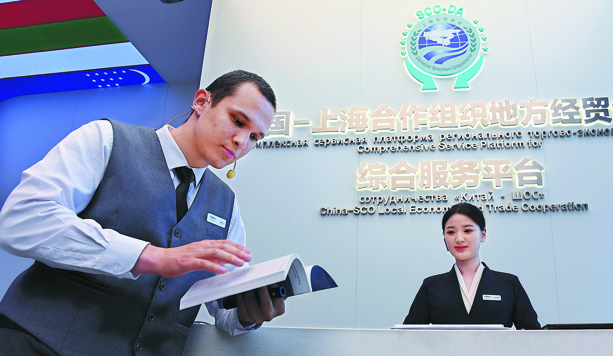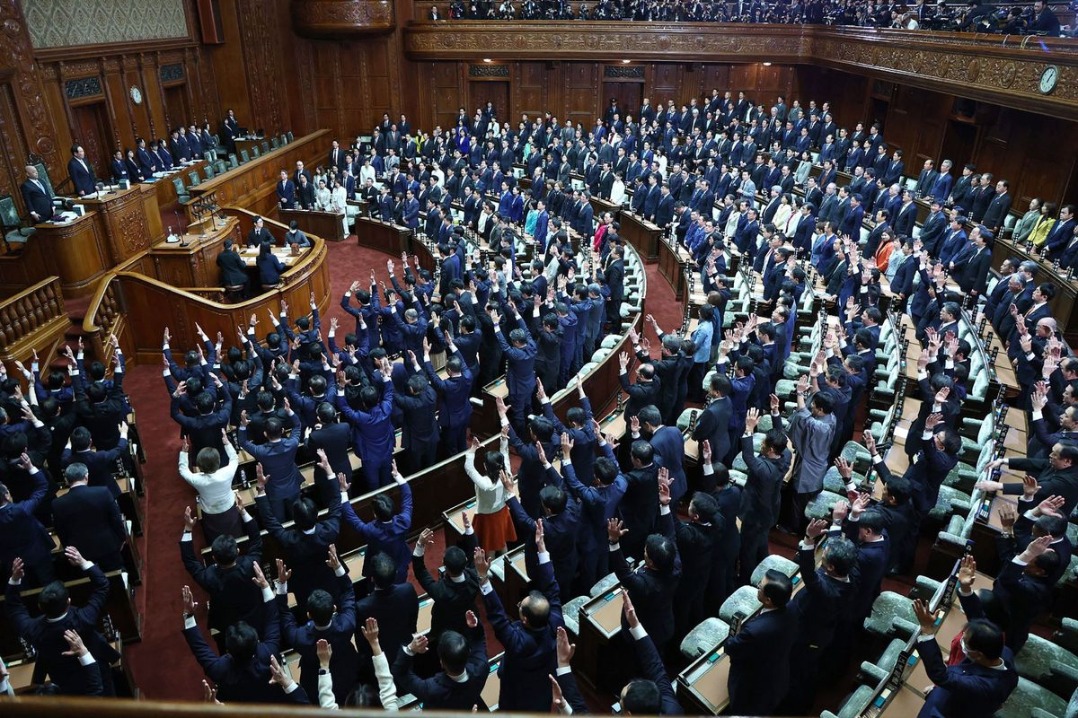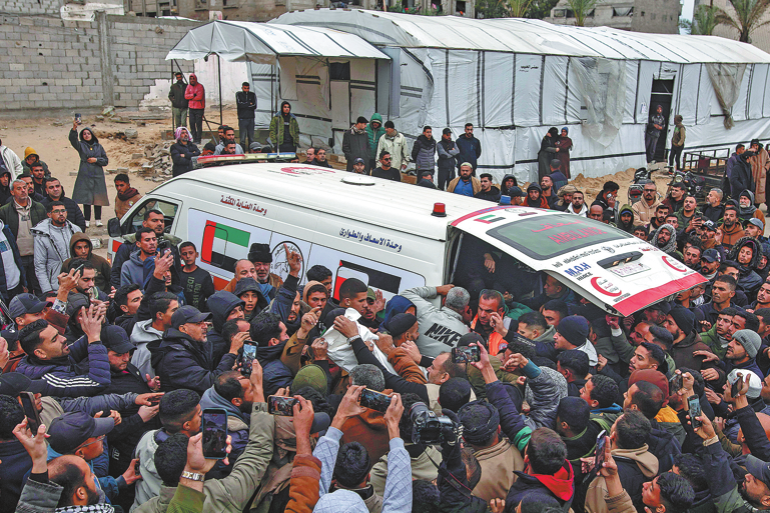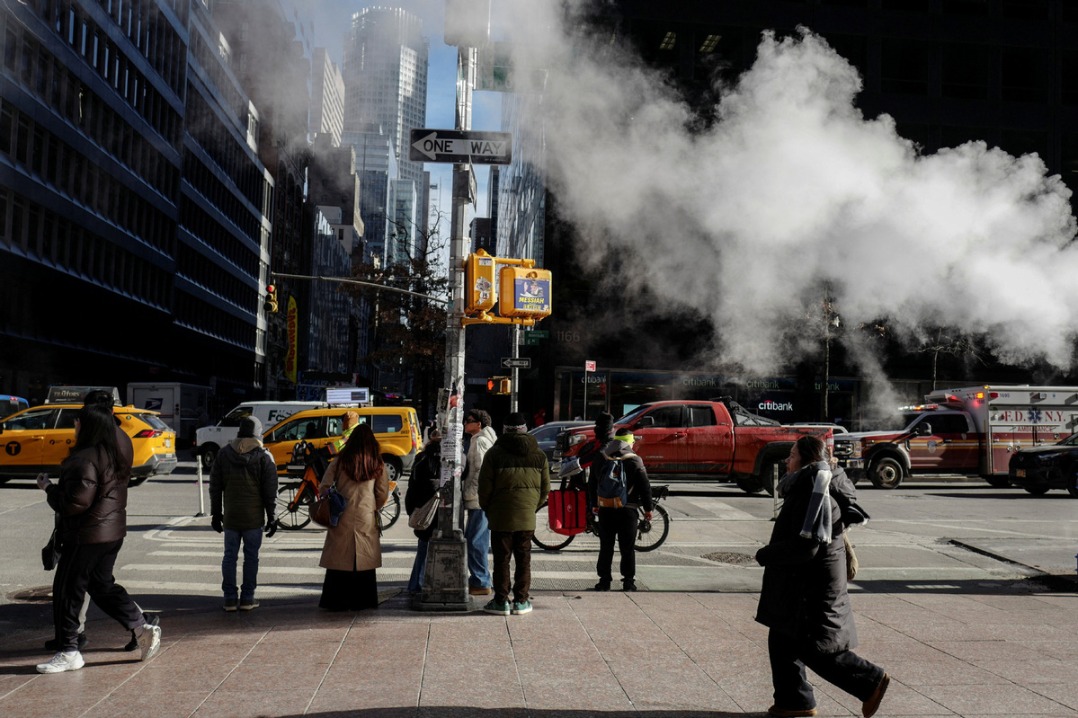Leaders vow to achieve security and prosperity


Leaders of the Shanghai Cooperation Organization countries sought to forge closer ties and boost cooperation for a fair and just world order conducive to long-term peace, common security and prosperity.
The New Delhi Declaration of the Council of Heads of State of the SCO, issued at the end of Tuesday's virtual summit, said member states pursue a policy that excludes bloc, ideological and confrontational approaches to address the problems of international and regional development.
With Indian Prime Minister Narendra Modi virtually chairing the meeting, leaders addressing the summit included Chinese President Xi Jinping, Russian President Vladimir Putin, Kazakhstan's President Kassym-Jomart Tokayev, Tajikistan's President Emomali Rahmon, Uzbekistan's President Shavkat Mirziyoyev, Iranian President Ebrahim Raisi, Pakistani Prime Minister Shehbaz Sharif and United Nations Secretary-General Antonio Guterres.
SCO Secretary-General Zhang Ming and Director of the Executive Committee of the SCO's Regional Anti-Terrorist Structure Ruslan Mirzayev also attended the summit.
The member states reaffirmed their commitment to the formation of a "more representative, just, democratic and multipolar world order "based on the universally recognized principles of international law, multilateralism, equal, joint, indivisible, comprehensive, cooperative and sustainable security, cultural and civilizational diversity, mutually beneficial and equal cooperation of states with a central coordinating role of the UN.
The New Delhi Declaration listed a number of global challenges, including new and emerging conflicts, turbulence in the markets, supply chain instability, climate change and the COVID-19 pandemic.
Sharif said in his statement that terrorism should not be "used as a cudgel for diplomatic point scoring".The Pakistan Observer newspaper reported that Sharif asked SCO members to act immediately in both their national capacities as well as collectively to fight the three evils of terrorism, extremism and separatism.
Expressing concern about the situation in Afghanistan, the leaders said they consider "it essential to establish an inclusive government in Afghanistan with the participation of representatives of all ethnic, religious and political groups in Afghan society".
The declaration noted that digital transformation is a driving force for global, inclusive and sustainable growth, and is conducive to achieving the goals of the UN 2030 Agenda for Sustainable Development.
Putin said Russia will continue to oppose Western sanctions. "Russia counters all these external sanctions, pressures and provocations and continues to develop as never before," he said.
The writer is a freelance journalist for China Daily.
Xu Weiwei in Hong Kong and Xinhua contributed to the story.
































